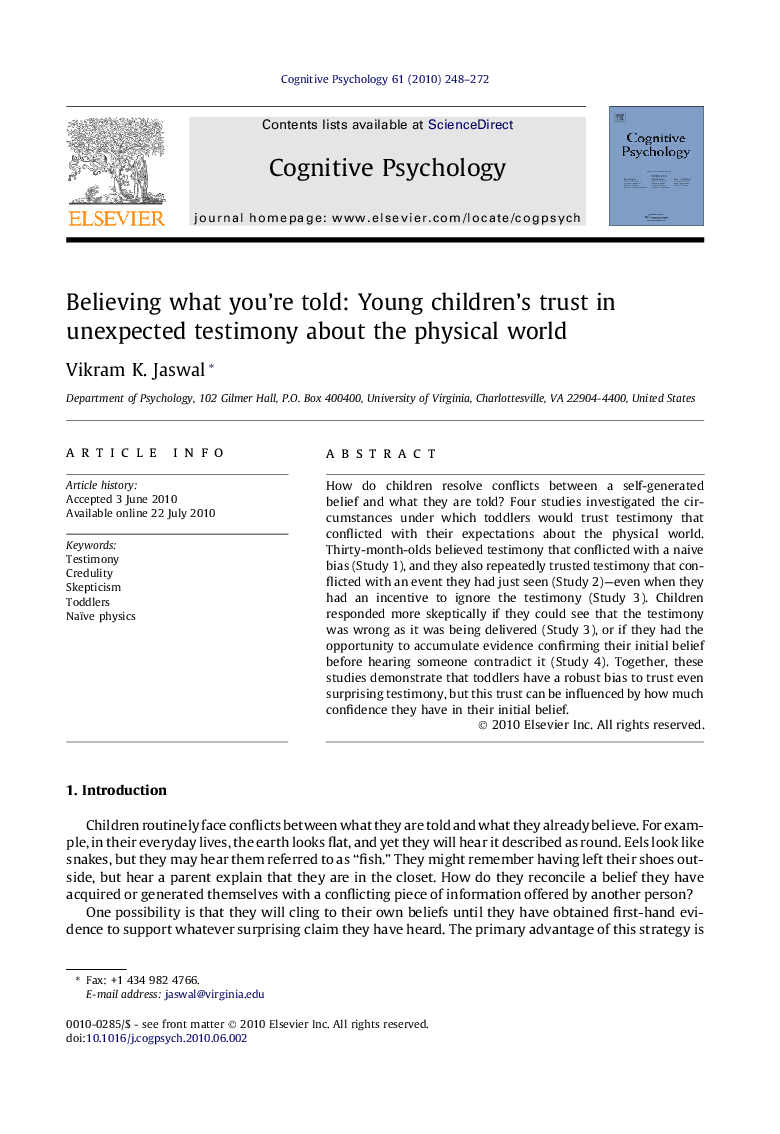| Article ID | Journal | Published Year | Pages | File Type |
|---|---|---|---|---|
| 916972 | Cognitive Psychology | 2010 | 25 Pages |
How do children resolve conflicts between a self-generated belief and what they are told? Four studies investigated the circumstances under which toddlers would trust testimony that conflicted with their expectations about the physical world. Thirty-month-olds believed testimony that conflicted with a naive bias (Study 1), and they also repeatedly trusted testimony that conflicted with an event they had just seen (Study 2)—even when they had an incentive to ignore the testimony (Study 3). Children responded more skeptically if they could see that the testimony was wrong as it was being delivered (Study 3), or if they had the opportunity to accumulate evidence confirming their initial belief before hearing someone contradict it (Study 4). Together, these studies demonstrate that toddlers have a robust bias to trust even surprising testimony, but this trust can be influenced by how much confidence they have in their initial belief.
